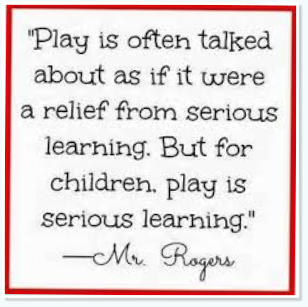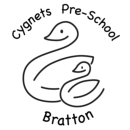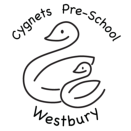
© Copyright 2016
Our philosophy is “Children’s play
is their work”
At Cygnets we promote learning
through play by following the
children’s interests and looking for
teachable moments where we can
extend and embed learning. If
children are involved in making
their own choices they become
more independent and confident in
their learning.
Your children will be educated in
an environment where their
intellectual abilities and self-
esteem grow, where imagination
and curiosity are cultivated,
where critical thinking and
competencies flourish, and where
they learn to respect all cultures,
value others and their opinions.




Children are born with a natural desire to
explore and learn and practitioners can support
them in this. We do this by creating an enabling
environment (both physical and emotional) and
through the relationships and interactions that
the children experience. We do not plan ahead,
rather we remain ‘in the moment’ with the
children as they explore and learn. We observe
carefully, and enhance the learning whenever we
spot a ‘teachable moment’. Our observations,
interactions and the outcomes are recorded
afterwards.
Child-led learning in the early years allows
children to thrive while making accelerating
progress. Young children learn and develop best
when they are in a stimulating environment that
is carefully organised and equipped to meet their
needs, interests and stages of development, and
where each children’s progress is carefully
observed, managed and enhanced by adults who
engage and interact with them to support them in
making outstanding progress.”
Anna Ephgrave the Nursery Year in Action 2015
In the moment planning uses the following OFSTED’s definition of teaching:
‘Teaching should not be taken to imply a ‘top down’ or formal way of working. It is a
broad term which covers the many different ways in which adults help young children
learn. It includes their interactions with children during planned and child-initiated
play and activities: communicating and modeling language, showing, explaining,
demonstrating, exploring ideas, encouraging, questioning, recalling, providing a
narrative for what they are doing, facilitating and setting challenges. It takes
account of the equipment they provide and the attention to the physical environment
as well as the structure and routines of the day that establish expectations. Integral
to teaching is how practitioners assess what children know, understand and can do as
well as take account of their interests and dispositions to learning (characteristics of
effective learning), and use this information to plan children’s next steps in learning
and monitor their progress.’

“The extremely passionate manager and her staff have high
aspirations for all
children. They continuously evaluate children's learning
through play and
observation, quickly identifying any gaps. Highly trained staff
monitor children's
development and seek support from outside agencies where
required. All
children make excellent progress from their starting points.”
OFSTED 2022


















































































